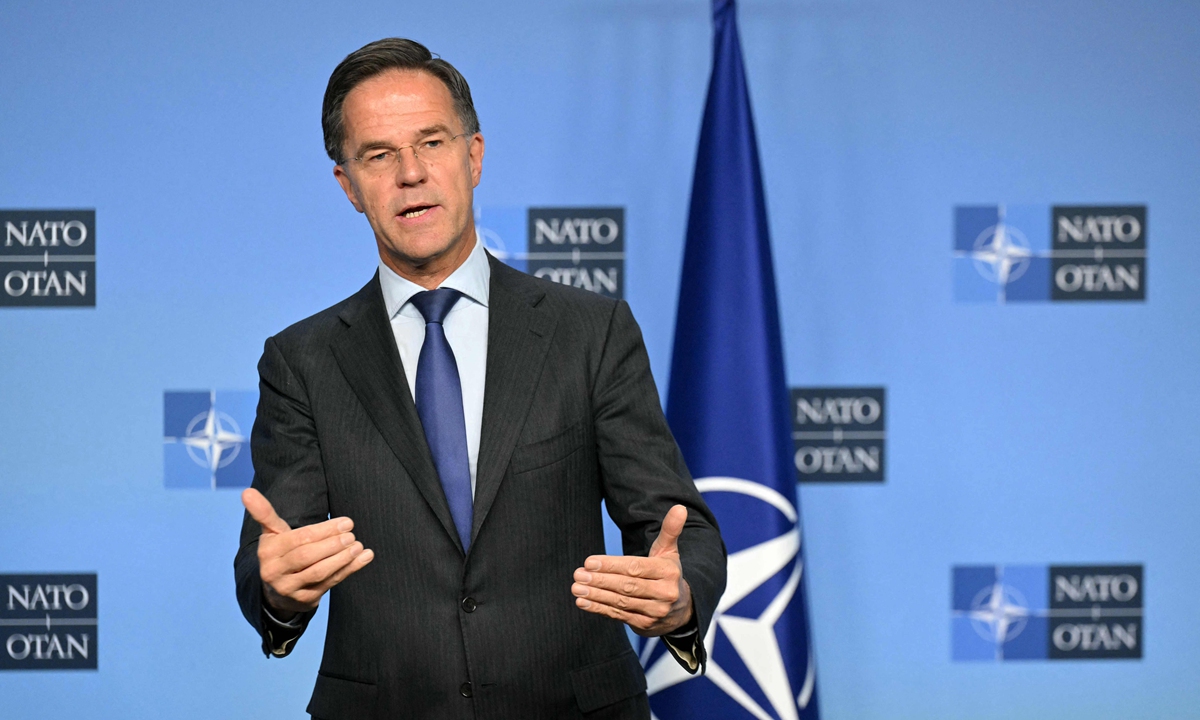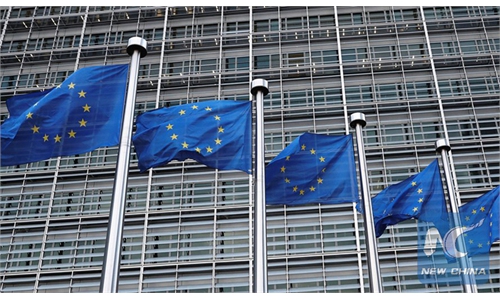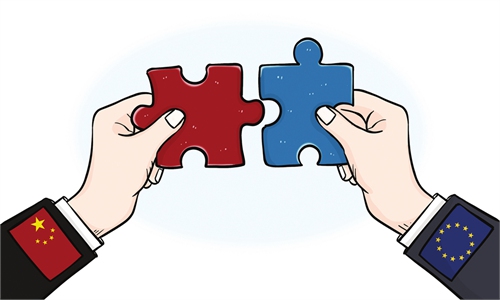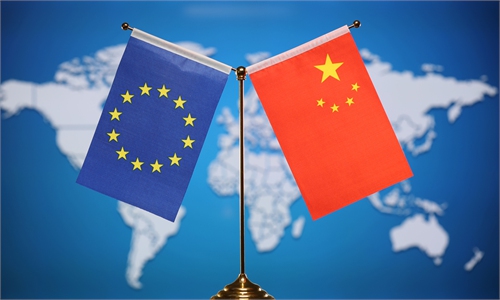Behind European politicians’ hawkish China remarks, there are growing concerns over transatlantic ties: analyst

NATO Secretary-General Mark Rutte
After the NATO chief and the new EU foreign policy chief's hawkish rhetoric against China, especially those hyping "China's support to Russia," analysts on Wednesday said the remarks are an "oath of loyalty" intended to fix the new US administration's attention on China to alleviate EU's own pressure.
NATO Secretary-General Mark Rutte claimed on Tuesday Russia's growing economic and military cooperation with China, North Korea and Iran is threatening Europe, the Indo-Pacific and North America, Reuters reported.
Rutte, in what appeared to be a message to the next US administration as President-elect Donald Trump prepares to take office, underlined the importance of transatlantic unity and continued support for Ukraine, Reuters said.
Speaking before talks with French President Emmanuel Macron, Rutte claimed that China backs Russia's economy, enables its defense industry and amplifies its narrative on the world stage.
Also on Tuesday, the EU's incoming foreign policy chief Kaja Kallas said that China should face "a higher cost" for allegedly supporting Russia in the war against Ukraine, the Guardian reported.
The former Estonian prime minister was speaking to members of the European Parliament at a confirmation hearing before she takes office, the report said.
In a carefully worded overture to the incoming Trump administration, Kallas said support for Ukraine was in the US' interest. "If the US is worried about China, or other actors, then they should also be worried about how we respond… [to] Russia's war against Ukraine."
The remarks come as Trump's victory in the US presidential election has caused concern in Kiev and other European capitals about the degree of future US commitment to helping Ukraine, according to Reuters.
Zhao Junjie, senior research fellow at the Institute of European Studies at the Chinese Academy of Social Sciences, told the Global Times that the EU has been bleeding heavily in the past few years due to the Ukraine crisis and its security is deeply bound to the US.
Behind those groundless "China support" claims and hawkish words toward China is EU anxiety over security, Zhao said, adding that the EU hopes to continue to align with the US given their affinity in values and ideology.
The remarks targeting China reflect the EU's eagerness to stabilize the transatlantic relationship with the US after Trump's re-election, Cui Hongjian, a professor at the Academy of Regional and Global Governance at Beijing Foreign Studies University, told the Global Times on Wednesday.
By enacting China as a shared target, some European politicians are making an oath of loyalty to the US. They pledge strategic coordination with the US in the hope that the new US administration would focus on China and cast less pressure on the EU, Cui said.
Zhao said that the EU is in an apparent dilemma that while Brussels wants to maintain the affinity with the US which is subject to changes after the US elections, it must also consider the bloc's economic and trade interests.
Politico published an article on November 6 titled "EU's trade war nightmare gets real as Trump triumphs," underscoring the EU's difficult situation.



